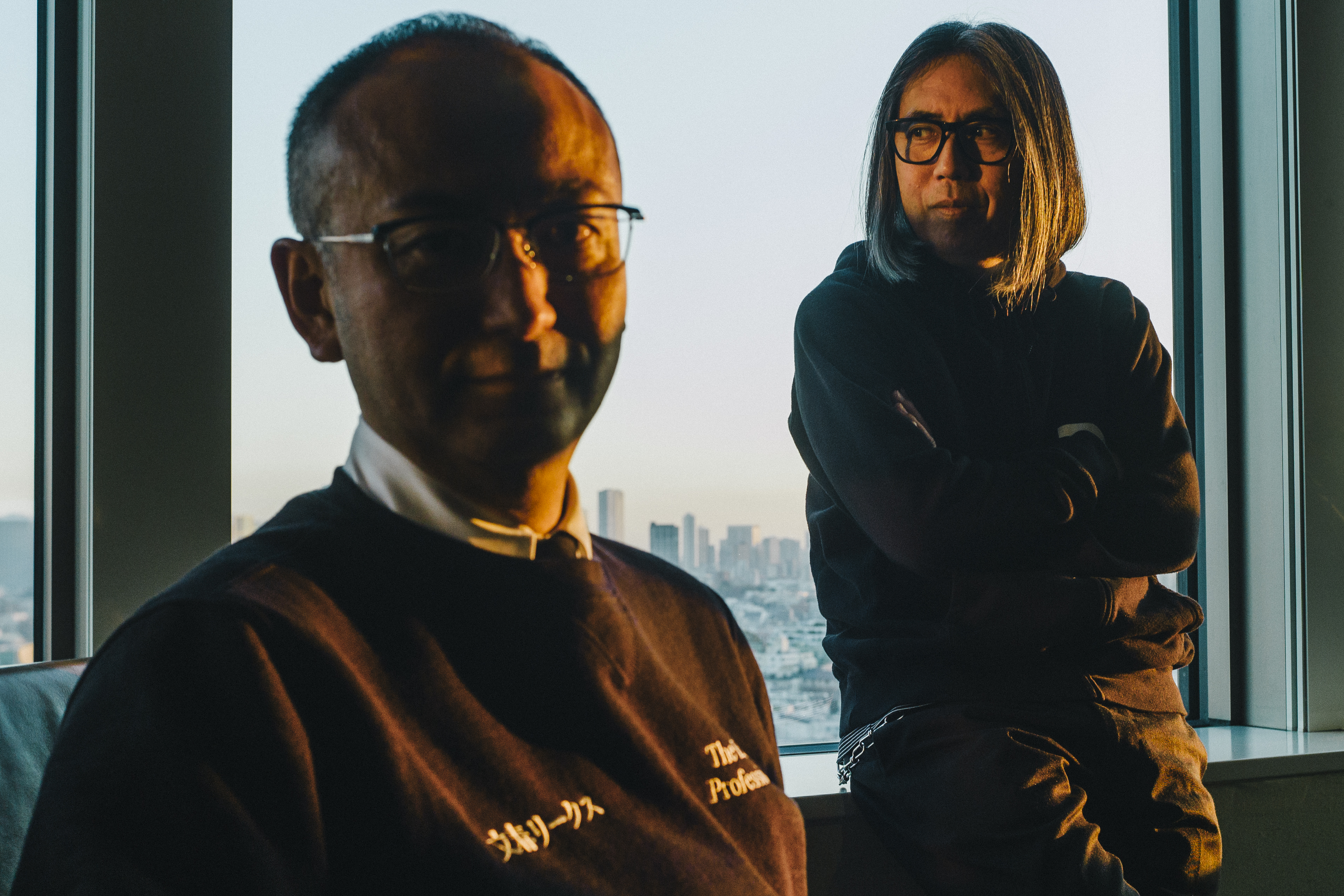
30年以上にわたりファッションシーンの中心に君臨し続ける「fragment design(フラグメントデザイン)」主宰 藤原ヒロシ。一方、2012年に「週刊文春」の編集長就任後、日本のジャーナリズムの代名詞とも言える巨大メディアへと育て上げた”文春砲”の生みの親で、現同誌編集局長の新谷学。これまで交わることのなかった時代を牽引するキーパーソンが語り合う、これからの時代に求められる『ブランド論』。JBpress autograph(オートグラフ)との連動企画として、RoCでは全3編でお送りするふたりの対談vol.3では、人を引きつけるふたりの信念と原点。
藤原ヒロシVS”文春砲”新谷学 激変する時代の「ブランド論」vol.2
■”ブランド価値”をどこに据えるか?
新谷 藤原さんは近年のブランドビジネスについては、どう感じていますか?
藤原 やっぱり、アイデンティティがすべてにおいて必要ですよね。◯◯らしさというか、パーソナリティというか。流されるとそれを見失うことがあるかもしれませんね。
新谷 確かに。今は本当に激動の時代だから、いろんなことを変えてしまいがちだけれど、一刻も早く変化すべきことと、絶対に変えてはいけないことがある。その見極めが少し鈍っているように見えます。ブランドやメディアに限らず、あらゆる組織がそこを間違うとダメになっちゃいますよね。「ブルックス ブラザーズ」のポロカラーシャツとユニクロのボタンダウンの違いは何か、どこに価値があるのか、みたいな話かもしれません。
―藤原さんは近年、歴史あるブランドとお仕事をされることが多いですが、大切にしていることはありますか?
藤原 大切なことかどうかはわかりませんが、やりながらわかってきたことは、自分がそのブランドに対してどこまで踏み込んでやるのか、という範囲を見極めることですかね。コラボレートって50:50の関係であるべきだから、相手がよいと思ったことは認めるべきで、そうじゃなければ自分のブランドでやったほうがいいってことになっちゃいますから。お互いの意見をぶつけ合いながらものづくりをするときに、こちらの意見を押し付けず、向こうの意見も聞きながらやったほうがいいと僕は思います。

新谷 今は猫も杓子もみんなコラボレートしていますね。
藤原 ”コラボ”という言葉がすごく広範囲に広がっていて、そんなの簡単じゃないかと言う人もいっぱいいます。確かに誰でもできるかもしれないけれど、誰もやらないから最初にやる人が必要なわけで。
それは音楽でも同じことが言えて、サンプリングして曲づくりを始めたときに、そんなの誰でもできると言う人がたくさんいたんです。でもあなたはやってませんよね?って僕はずっと思ってきたんですけれど。
ただ、ファッションも音楽も「サンプリング」という概念が出てきたことによって、文化が変わってきたような気がしますよね。いつ、誰が、どのタイミングでやるかというのが、とても重要になっていると思います。
新谷 確かにそうかもしれません。それによってプロとアマチュアの境界線も曖昧になりました。
藤原 メディアもそうですよね?
新谷 みんなが自分でメディアになれちゃう時代なので。あらゆる情報がフラット化して、今は一般の人の情報も含めて全部ごちゃ混ぜです。その中で「文春」という看板の下に出ている情報にはお金を払う価値がある、と思ってもらえるには、どうすればよいかということを常に考えています。何をもってわれわれは、プロだって胸を張れるのかということですよね。
藤原 それって「文春」に嘘はない、という自信だと思うのですが、過去に間違った情報を出したことはあったんですか?
新谷 実はほとんど記憶にないんです。これは違うなって思ったら、締め切り目前でページに穴が空くことになっても撤収しますから。一度でも明らかな誤報を出してしまうとブランドに傷がついてしまいます。
藤原 そこがメディアとしての一番のブランディングですからね。
■人を惹きつける”貫く姿勢”
新谷 以前警察庁長官をやっていた人とご飯を食べたときに、「なんでこんなに冤罪が多いんですか?」と聞いたんです。そうしたら彼は「そりゃあ、シロくする捜査をしないからだよ」と言っていました。当然捜査員は相手をクロだと思って捜査をするわけですが、それとは別にシロにするための捜査も同時にやると、結果「なんだ、シロじゃないか」とわかることがある。そういう複眼的な捜査が大切だと。
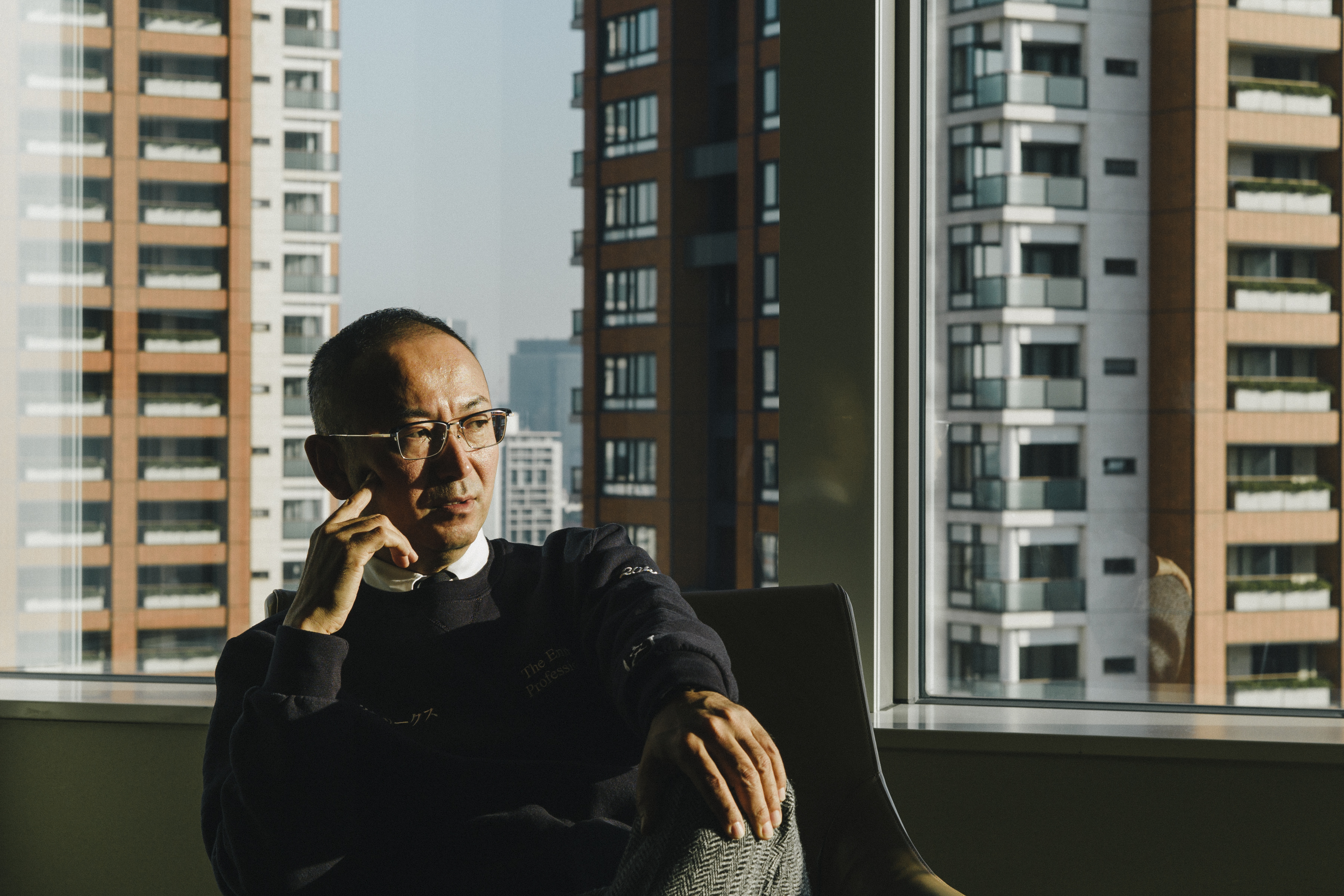
それ以来、現場には「俺たちも常にシロくする取材を心掛け、いざとなったら撤退する勇気を持とう。一個でもファクトを間違えて、看板に対する信頼を失ったらメシが食えなくなるよ」と話しています。
藤原 それがちゃんとされていれば、フェイクニュースだらけの世の中においても、「文春」のお墨付きだったら信じてもいいかな、となるわけですから、大きな強みになりますよね。
新谷 昨年、東京高検検事長だった黒川弘務さんが、朝日や産経の記者と賭け麻雀をやっていたことを「文春」がスクープしましたが、その後朝日新聞社の「月刊Journalism」という雑誌が、どうすれば私たちは信頼を回復できますか?とインタビューしに来たんです。
そこで私が強調したのは、賭け麻雀や取材源との距離の近さが問題なんじゃない。ディープなネタを取ったのに書かないことが問題なんだと。優先すべきは記事を書くことで、人間関係を維持することじゃない。その覚悟を持てるか持てないかが、プロかアマチュアかの違いなんです。
私だったら記者を麻雀に行かせて、「黒川検事長独占告白5時間」って、全貌を書きますよ。朝日新聞も社長直轄で、部署の垣根を超えた精鋭部隊をつくって、政権の調査報道を1年間地道にやり続ければ、風景が変わるのではないかと。
「The New York Times」はその姿勢を貫くことでブランディングに成功して、デジタルシフトしても稼げているわけですから。大変僣越ながら、朝日はそこまでやる覚悟があるんですか?と言わせていただきました。
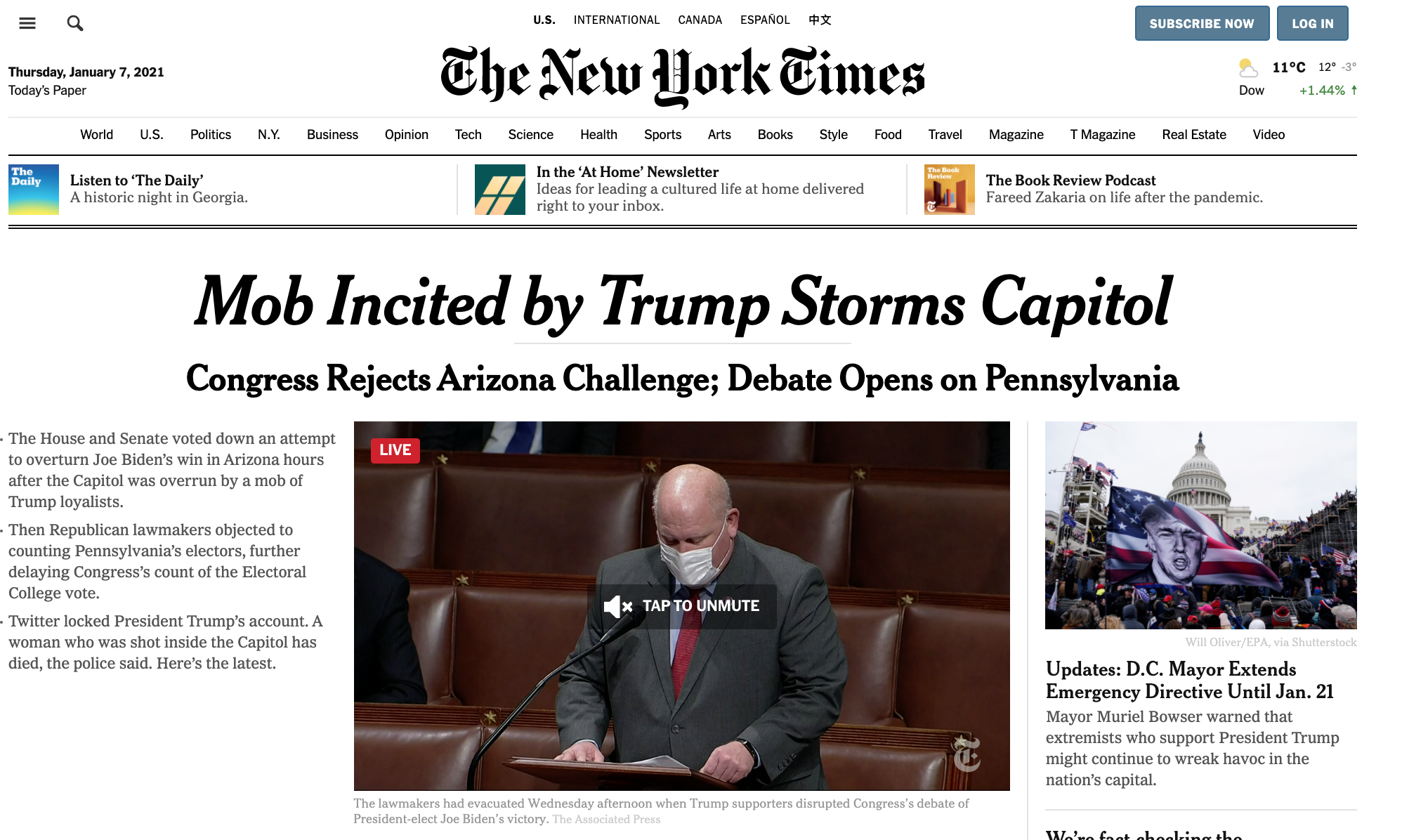 公式トップページより
公式トップページより
藤原 あれは世の中の人は、何に対して怒ってたんですかね? コロナ禍、賭け麻雀、癒着とかそのあたりが曖昧だったから、一般の人は「賭け麻雀していいのか!」なんて、くだらない揚げ足を取っているだけだったように思います。
新谷 うちに関して言うと、癒着がけしからんっていうトーンではなかったですね。むしろ「週刊文春」が目指すものって、人間への興味、好奇心ですから。だから、あんなに注目されている状況で、しかもコロナ禍で緊急事態宣言の最中に深夜2時まで賭け麻雀やっちゃう人だぜ、面白いよなって。
藤原 ちょっとチャーミングなイメージじゃないですか。
新谷 だから後を追ったメディア側、特に大手新聞の受け止め方が、私からすると一番違う方向に行きましたね。やっぱり取材源との癒着はダメだという話になりましたから。それってますます自縄自縛で、ディープな取材ができなくなります。
藤原 そんなことしたら、番記者の意味もなくなりますよね。
―ファッションとメディア。それぞれの分野におけるブランド論を伺ってきましたが、藤原さんはご自身そのもののブランディングは意識されてきたんですか?
藤原 全く戦略的ではなかったですけれど、結果的にうまくブランディングしてきたと思いますよ。自分でもそう思います。みんなと遊んでいてひとり「じゃあ帰るね」みたいなことをしても、みんな「何だよ」と思わずに、「ヒロシはああいう奴だから仕方ないな」と思ってくれる(笑)。そうだ、今度あれ出しません? 「文春·黒革の手帖」。
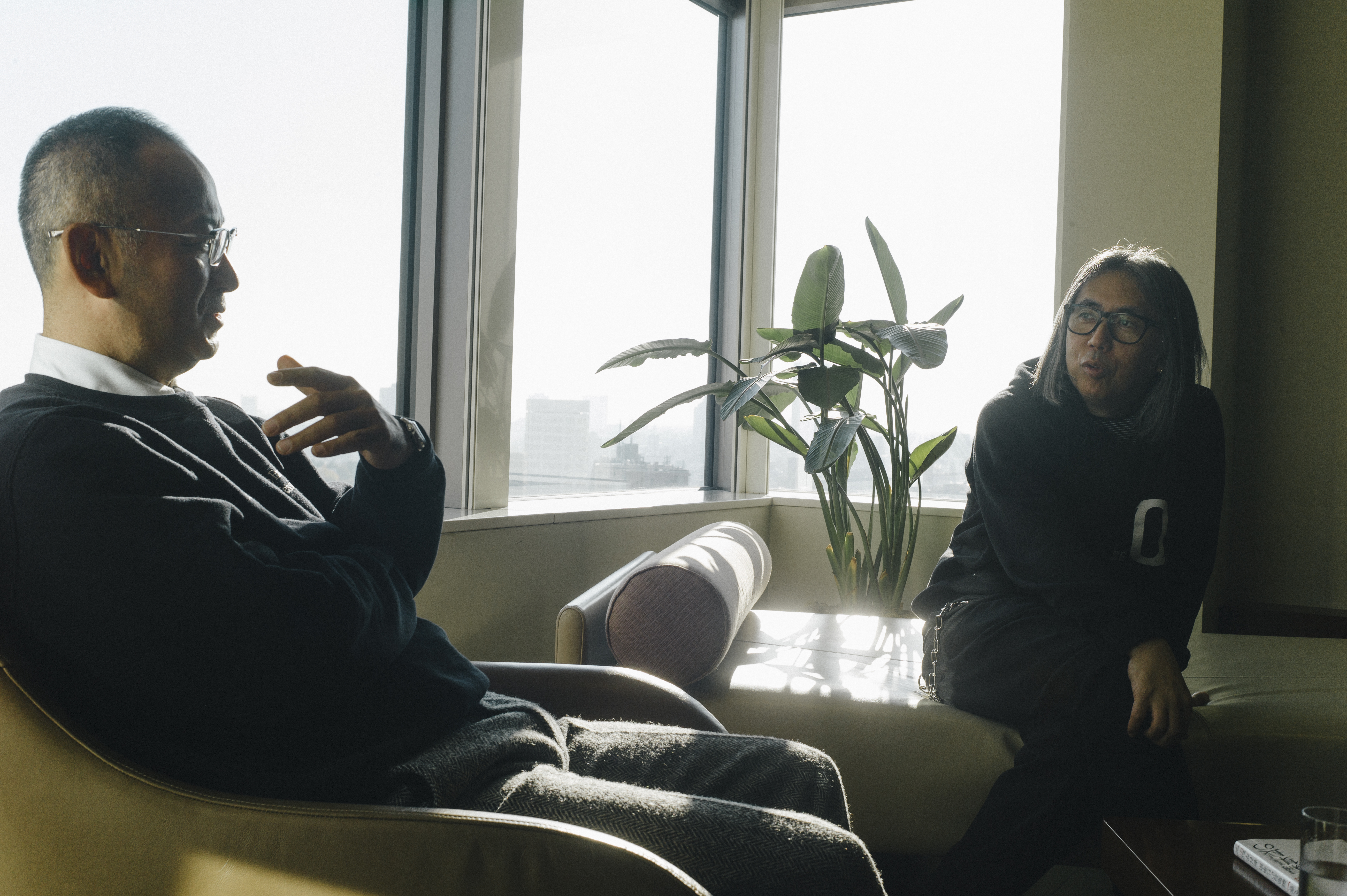
新谷 おお~。本当に黒革でつくったら格好いいな。
藤原 リークがあったネタとか、追ったけどボツになったネタとかを全部書いて。2冊セットで無地のもあって。僕、それ持って芸能人と食事に行きますから(一同笑)。
新谷 藤原さんとコラボできたら素晴らしいですね。
藤原 〝モレスキン〟あたりと(笑)。
■反骨のふたり、原点はパンクと任侠にあり
新谷 今更ですが藤原さんは、どんな少年だったんですか?
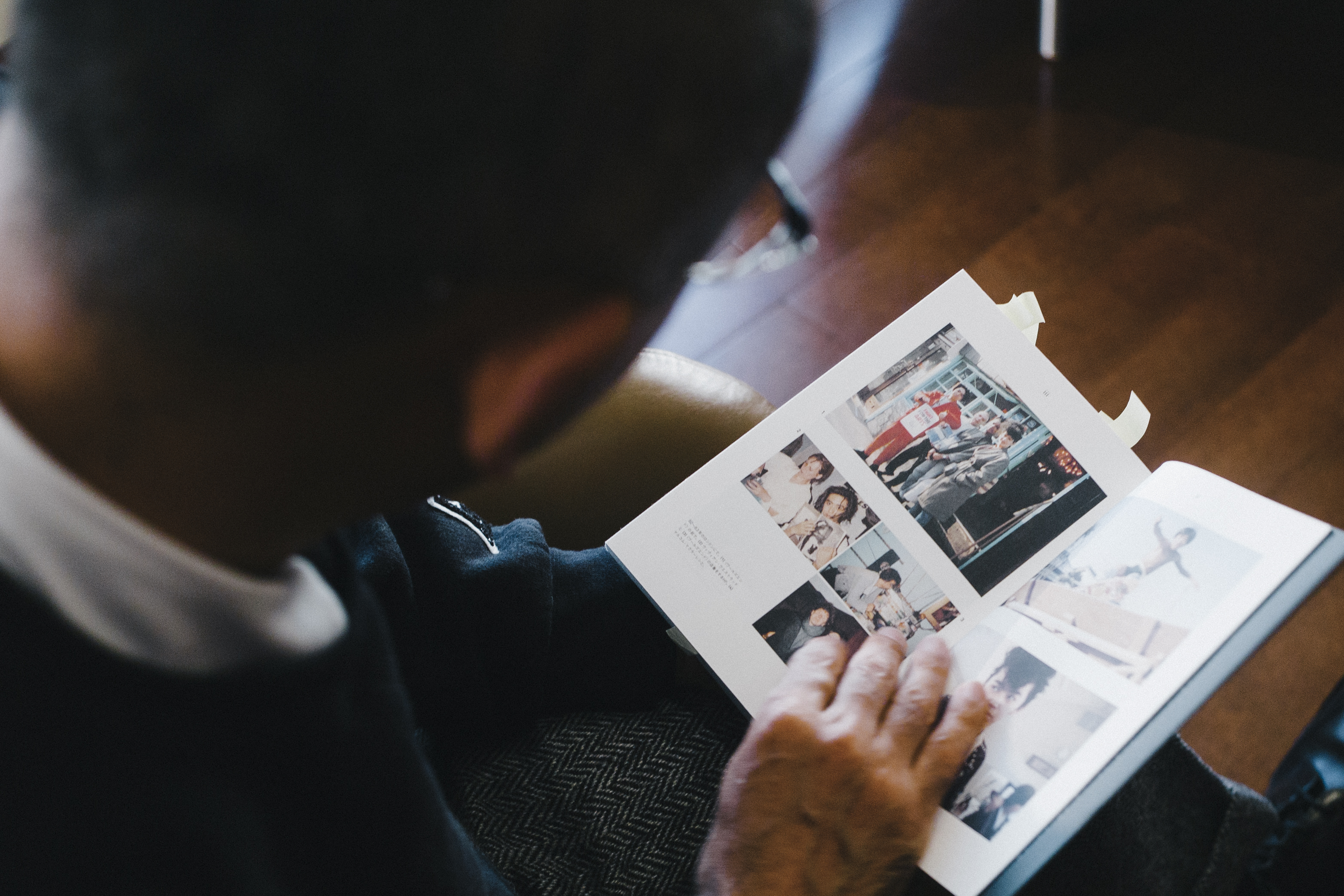
藤原 中学のときはパンクに衝撃を受けました(笑)。それまでは、同じ部屋で暮らしていた姉の影響がすごく大きくて。姉が聞く音楽を聴いて、姉が好きな服を着て、みたいな。それがすごくプラスになりましたね。
新谷 地元の三重県では、「セックスピストルズ」なんて、どう考えてもメジャーじゃなかったですよね?
藤原 いい具合の反逆の音楽というか。ヤンキーにはならないけれど反体制側ではいたい、というところにパンクがぴったりきたんでしょうね。今でもすごくよく覚えているのが、当時の雑誌にイラストで出ていた、「ベイシティローラーズ」とジョニー·ロットンの比較。どちらもタータンチェックを着ているのに、片やチャラいアイドルと、片や反体制派。そこでパンクの方をすごい好きになっちゃいましたね。アイビーの「VAN」も姉の影響で通りましたが、反体制の格好よさに目覚めたのは、パンクとの出会いがきっかけでしたね。
新谷 私の地元の八王子ではパンクよりも任侠だったな(笑)。中学一年のときにテレビで観た「仁義なき戦い」が、いまだに自分史上の映画ランキング1位ですから。実は菅原文太さんが演じる広能昌三のモデルになった、美能幸三さんにインタビューしたことがあるんです。
藤原 糖尿病で脚を切っちゃった人ですよね。
新谷 本当になんでも知ってますね(笑)。
藤原 僕、一回対談しませんかって言われたんですよ。
新谷 ええ~!本当にいろいろな方と繋がっていますね。
藤原 誰かの知り合いだったのかな? でもそういうタイプの人なんですよね。ちゃんと出て喋れるというか。
新谷 インテリなんですよ。もう亡くなってしまいましたが、仲良くなって何回か呉に行ってお会いしました。美能さんには映画の中に出てくるようなセリフを面と向かって言われました。「喧嘩いうんは、狙われるもんより狙うもんのほうが強いんじゃ」とか(笑)。
映画と同様に、背中に鯉の刺青が入っているというから、「なんで鯉なんですか?」と聞いたら、「喧嘩にこい、女にこい、博打にこい。だから鯉なんじゃあ」と仰っていました(笑)。
藤原 そういう人だったんですね。新谷さんは、現在そういう方面の交際はあるんですか?
新谷 いや、ゼロです。今は全然ないですね。
藤原 本当ですか? あったらダメなんですか?
新谷 ダメかどうかは難しいけれど、今のような時代では叩かれるでしょうね。そういえば、以前その筋では有名なヒットマンに取材をしたことがあります。それまでに6人殺したけど、一度も事件になってないなんてことをサラッと言うんです。彼はもともと家庭に恵まれず、グレてゲーセンで喧嘩していたときに出会った、地回りのヤクザに事務所に連れて行かれてメシをご馳走になったことがきっかけで、その世界に足を踏み入れたと言っていました。そして、その時のメシの味が今でも忘れられない、と。だから自分の組では、いつでも電気ジャーに炊きたての米を用意しておくようにと、若い衆に言ってるんですって。ちょっといい話になっちゃいましたね(笑)。
藤原 今のHIP HOP界にはそういう子たちが多そうだし、面白いし、「文春」でルポを連載したらいいんじゃないですか? 今は不良=暴走族やヤクザではなく、不良=ラッパーみたいな図式もあると思うので。かれらは、言葉もしっかりしているし、面白いんじゃないですか?
新谷 それは興味深いですね。事件って表と裏の狭間で起きることが多いから、本当は両方知ってた方がいいんですよ。私たちの仕事って、いろんなところに出かけて人に会って、この人からこんな話聞いて、あの人からあんな話聞いて、それらをガチャンと合わせると、思わぬ化学反応が生まれたりする。だから面白い人とは偏りなくどんどん会って、ジャンルを超えて世界を広げていく。それを30年以上続けてきたことが、私の編集者としての一番の財産なんですよね。
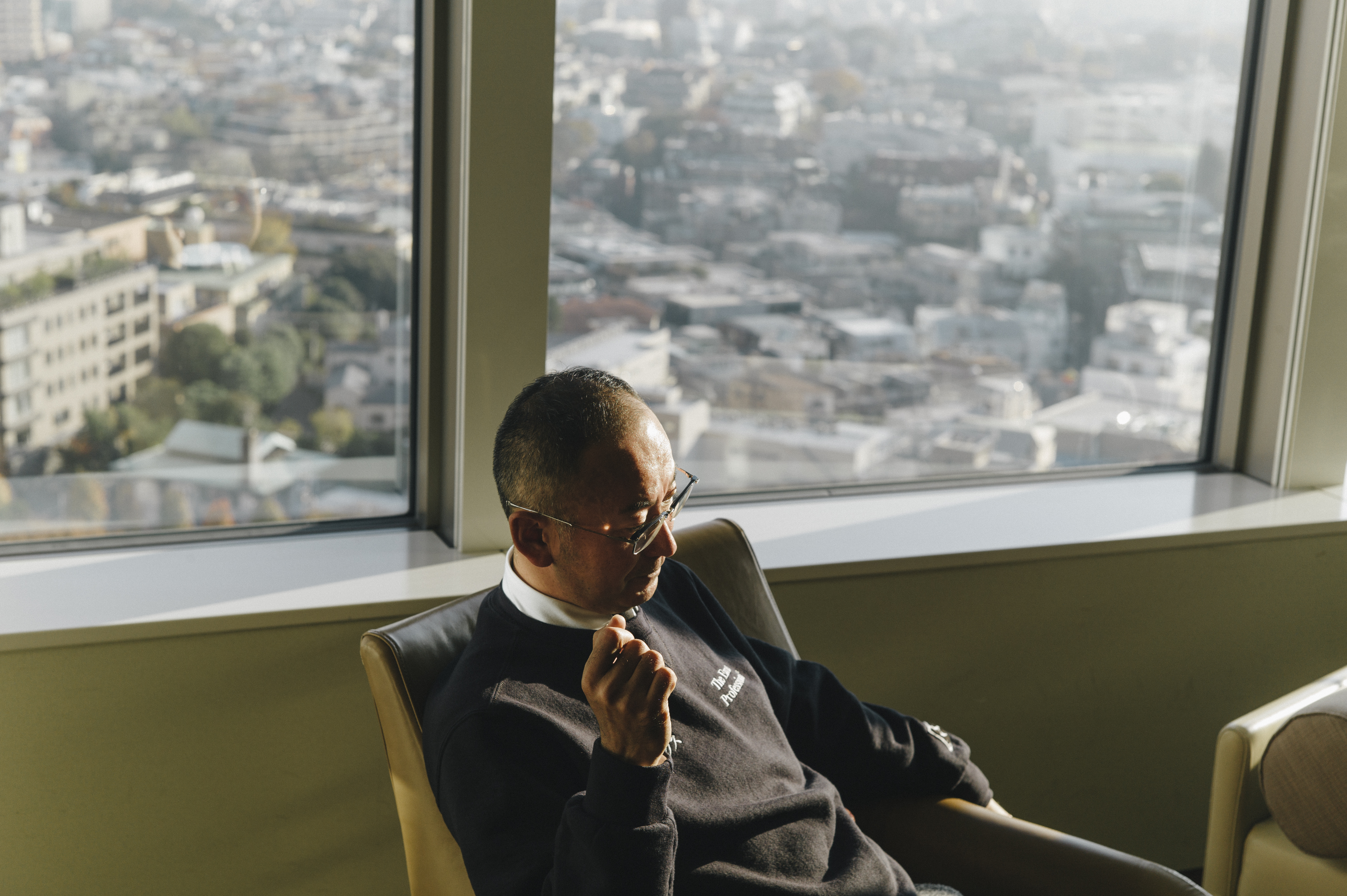
藤原 そういう意味では、僕も似ているところがあるかもしれません。
新谷 人とのお付き合いの仕方が、フラットですよね。
藤原 それもそうですけど、好きなことは右でも左でも関係ないというか。ファッションでも、アンダーグラウンドから大メジャーまで面白いと思うし。新谷さんこそ、会社の中で慕っている人がいっぱいいそうなイメージですが。
新谷 いつも向かうところ敵だらけって言っていますけどね(笑)。上に対してはこういう形で言いたい放題、やりたい放題で、誰にも頭を下げませんから。ただ、自分より若い連中のことは可愛いですね。
藤原 新谷派閥とかあるんですか?
新谷 体育会のノリで男で集まるのが好きなので(笑)、男ばかりです。擬似任侠集団みたいなところがあって、さっきの元少年Aの直撃取材でもそうですが、「骨は拾ってやるから行ってこい」と。
でもそうするためには、日頃から「あの人のためなら」と思ってもらえるように生きることがすごく大事ですね。藤原さんにだって、案件ごとにそういう人はいますよね?
藤原 変な話、僕に頼まれたらやるしかないな、と思ってくれる人はいっぱいいるかなとは思っています。あまり頼むことはありませんが。
新谷 頼まれた人、大喜びでしょう。藤原ヒロシに何かを頼まれること自体、ものすごい価値じゃないですか。
藤原 じゃあ酒鬼薔薇取材に行かせますか(一同笑)。
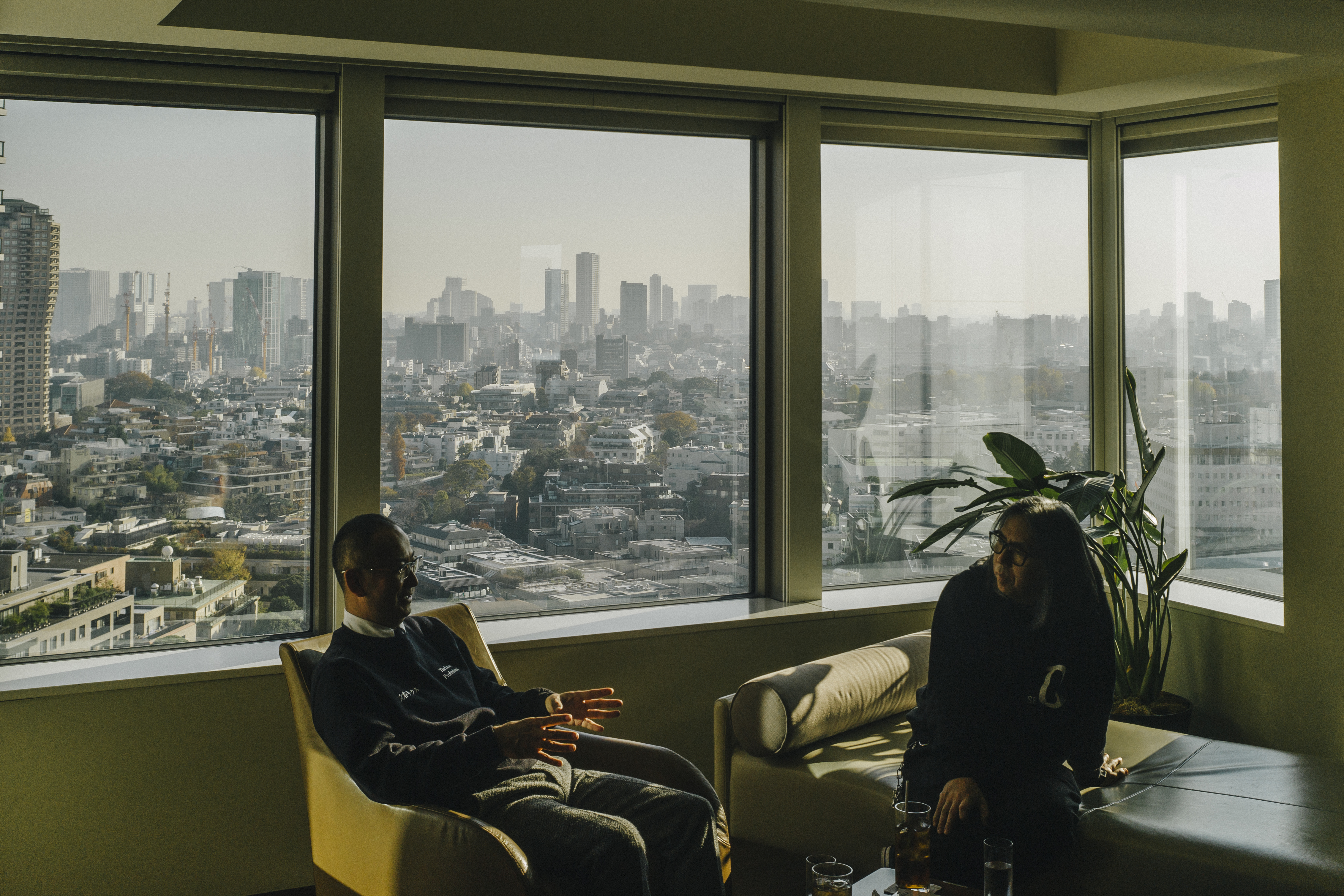
新谷 それでも苦手というか、合わない人っているんですか?
藤原 会ってもつまらない人はいますよ。自分のことしか話さない人とか。僕は自分が何をしてきた、とか話すよりも、世の中でおきた事件やトピックについて語るのが好きなんです。
新谷 藤原さんは評伝(「丘の上のパンクー時代をエディットする男·藤原ヒロシ半世紀」)こそありますが、いわゆる自伝もないし、自分の言葉はほとんど残されていないですよね。
藤原 そうですね。それはみんなに語ってもらえばいいかなって。『丘の上のパンク』も、ゲラチェックはしましたけれど、本になってからは一度も読んだことがないんです。
――この本に出てくる周囲の人々の証言に関しては、藤原さんがまったく修正を入れなかったという話を聞きましたが。
藤原 「これは違うよ」と怒っている人もいましたけれど。僕はたとえ記憶違いだったとしても、その人がそう思ったのであれば、それがその人にとっての真実だから、そのまま使った方がいいよって。
新谷 やっぱり、一本筋が通っているんですね。パンクのルーツを感じさせるというか。
藤原 いや、全くなんですけど、パンクには〝NO FUTURE〟という免罪符がありますから(笑)。これは結構強いですよ。明日はないんで。
新谷 この言葉があれば、何を言われても気になりませんね。
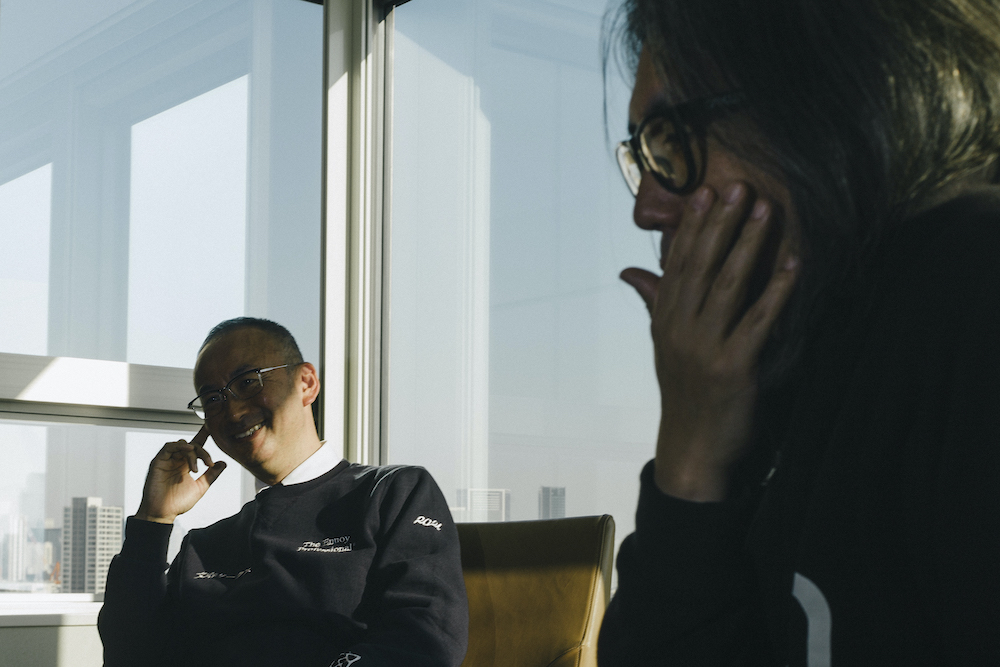
藤原 僕は人の意見は受け止めますが、悪く言われることはあまり耳に入ってこないんです。ネットで自分のことを絶対検索しないし、見ないから。
新谷 エゴサは私もしませんね。しかし「ネットにまた〝死ね〟って書かれてましたよ」なんて現場の連中に言われたりもしますが、これからは「大丈夫、俺〝NO FUTURE〟だから」って言います(笑)。すべてを無力化してくれるいい言葉ですね。
>>初対面、初対談。ふたりのお互いの印象は?
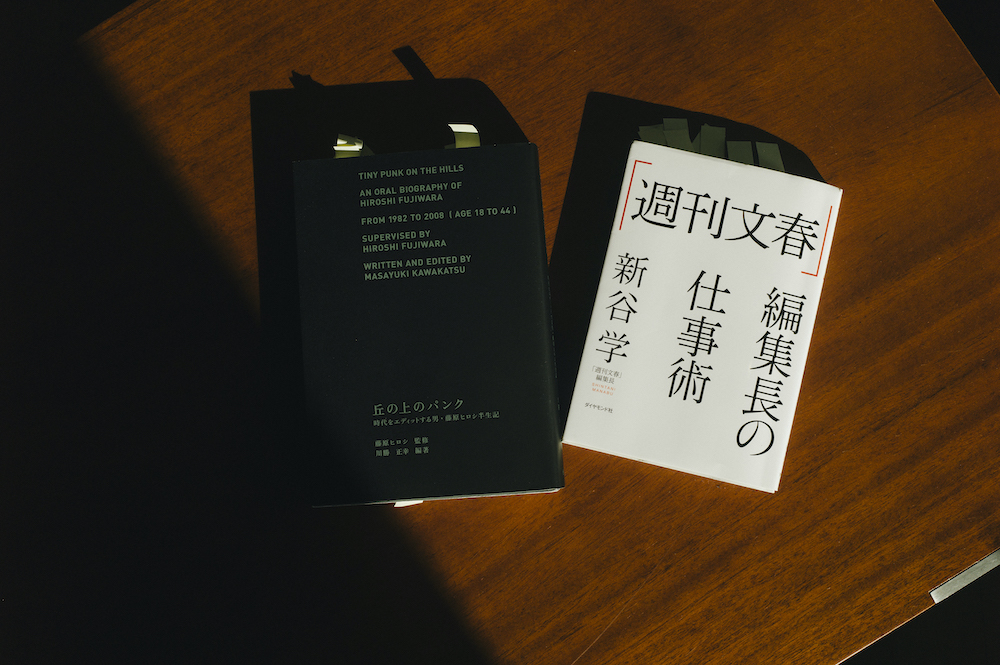
PROFILE
しんたに・まなぶ(編集者)
1964年東京都生まれ。早稲田大学政治経済学部政治学科を経て、1989年に株式会社文藝春秋に入社。「スポーツ・グラフィック・ナンバー」「マルコ・ポーロ」編集部、「週刊文春」記者・デスク、「文藝春秋」編集部などを経て、2012年に「週刊文春」の編集長に就任。圧倒的なスクープ力で、同誌を日本を動かすメディアへと成長させた。2020年より週刊文春編集局、ナンバー編集局担当の執行役員に就任。その劇的な半生は柳澤健氏によるノンフィクション「2016年の週刊文春」(光文社)に詳しい。
ふじわら・ひろし(Fragment Design)
1964年三重県生まれ。1982年頃からロンドンやN.Y.に渡航し、パンクやヒップホップといった最先端カルチャーの中心人物と交流を深める。1980年代前半からは東京のクラブシーンに新風を吹き込むミュージシャンとして、1980年代後半〜90年代前半からはストリートやアートに根づいたファッションを生み出すプロデューサーとして、東京のみならず世界のカルチャーシーンに絶大な影響を及ぼす。現在はデザインスタジオ「Fragment Design」名義で、世界的なメゾンブランドやナショナルブランドとのコラボレートを数多手がけている。
藤原ヒロシVS”文春砲”新谷学 激変する時代の「ブランド論」vol.1
藤原ヒロシVS”文春砲”新谷学 激変する時代の「ブランド論」vol.2













